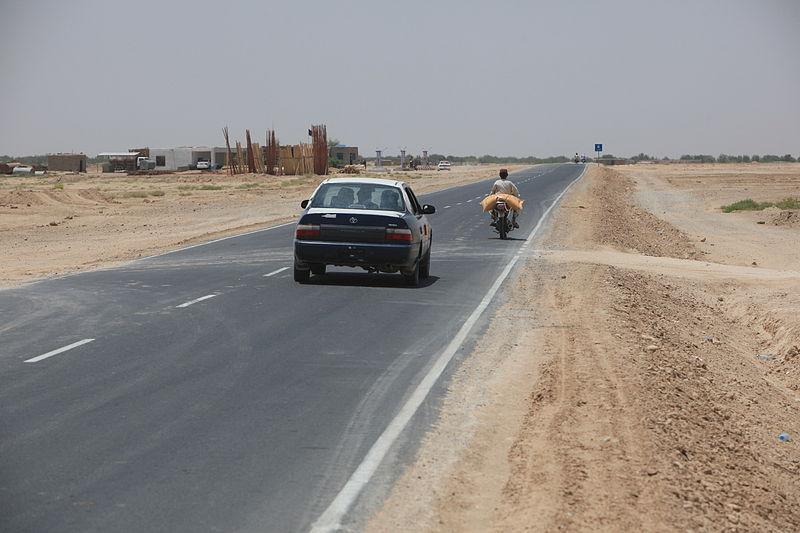Positive progress in Afghanistan finally begins to emerge
Afghans in Helmand province drive on a new road built by Afghans, in July 2012. (Photo by Sgt. Jame Mercure via Wikimedia Commons.)
Recent drone strikes in Pakistan, including one this week that killed Maulvi Nazir, a leading militant in the Pakistani Taliban, are making a significant dent in Taliban forces’ strength in both Afghanistan and Pakistan.
David Loyn, BBC international development correspondent, recently returned from Afghanistan and says there’s significant progress happening in there. But with the very fuzzy border between the progressing Afghanistan and drone-targeted Pakistan, the very different problems can sometimes move back and forth.
“The mountains between Pakistan and Afghanistan — has never been demarcated since the British were fighting there in the 19th century. And the Americans have had the same problems that the British did in order to try and pacify the area,” he said. “You have two different conflicts across this indeterminate frontier; boots on the ground on the Afghan side and these pretty regular drone strikes in the northwest frontier of Pakistan.”
For nearly a month, Loyn spent time in Helmand province in southwest Afghanistan where he says he saw positive progress in a number of areas for the first time since 2001.
“Between 2001 and 2006-2007 there were huge mistakes made by the international community,” he said. “They gave an open door to the Taliban to be able to come in and re-establish themselves and recruit.”
Particularly in Helman province. But that’s changed.
Now, you see the community operating in way that satisfies Afghan’s needs and provides alternative to the Taliban, Loyn says.
The new governor of the province, Mohammad Naeem, is a former general in the Afghan national police force and has been very outspoken about the Afghan drug problem, Loyn says.
There’s a lot of speculation Naeem could be backed by people becoming rich from the illegal drug trade. Still, in the month he’s been the new governor of Helmand province, Naeem has held security meetings in areas where the Taliban had been the strongest to try and bring tribal warlords together.
Although there’s progress the Afghan farmers, who grow 90 percent of the world’s illegal opium poppies, plan to continue with their illegal crop because they make a smaller profit from lawful ones. And that makes it harder to take care of their families.
“On this trip I came back with far more positive feeling for the post-American, post-British period,” Loyn said. “From a point of view of pulling out the military — it’s all working.”
Whether Karzai steps down in the 2014 election or the Taliban regroups, the old warlords wanting to return are a far bigger risk for Afghanistan than the Taliban, Loyn added.
“But these institutions and the government (are) at last beginning to emerge in Afghanistan,” he said.
We’d love to hear your thoughts on The World. Please take our 5-min. survey.
